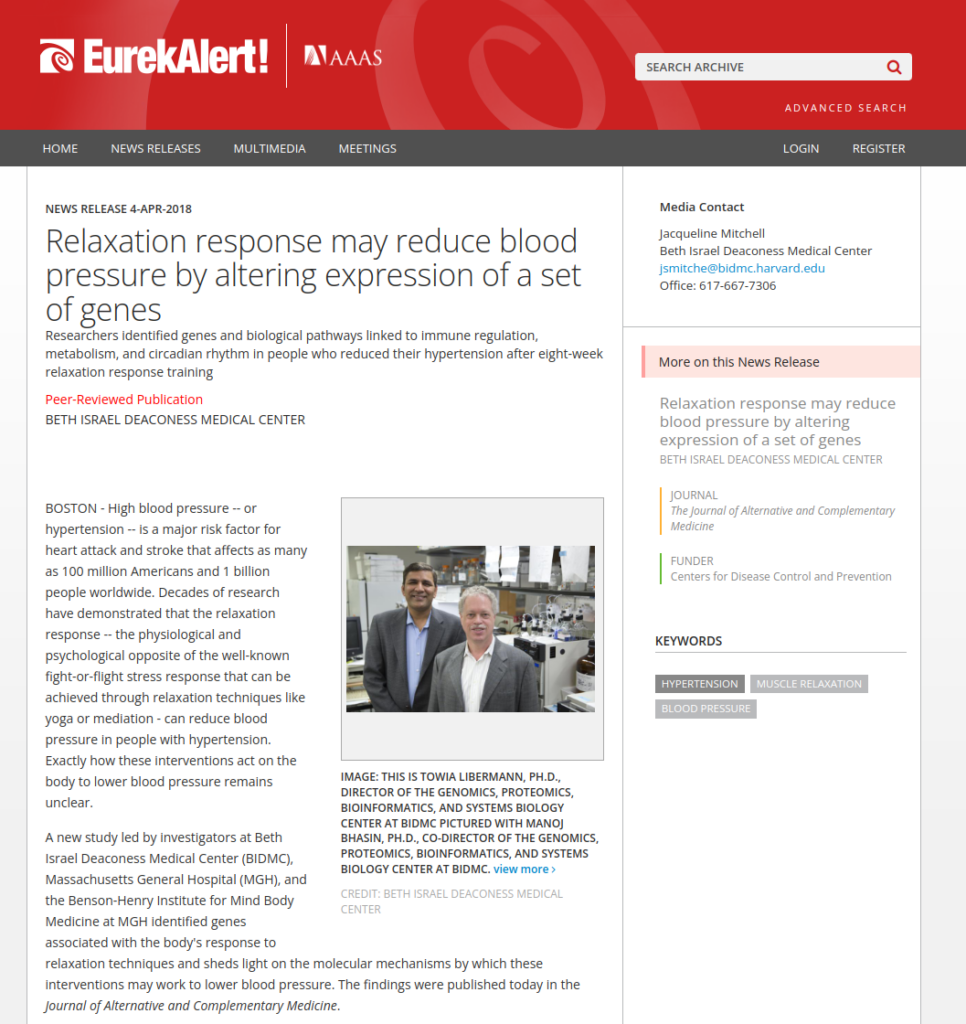Publication
AAAS Eureka Alert
Abstract
Researchers identified genes and biological pathways linked to immune regulation, metabolism, and circadian rhythm in people who reduced their hypertension after eight-week relaxation response training
Web and Email Links
Related Listings
Journal
Journal of Chronic Diseases
A prospective investigation was designed to test whether the altered behavior of the regular practice of a relaxation, meditational technique might lower blood pressure in 22 borderline hypertensive subjects. The investigation was unbiased with regard to the presence of antihypertensive agents; subject familiarity with blood pressure measurement or with the observer; observer error; and the effects of blood pressure variability. During the control period, blood pressures averaged 146. […]
Journal
Behavioral Medicine
The authors compared characteristics of 1,012 outpatients completing a 10-week behavioral medicine intervention with 300 outpatients who dropped out. They administered the Symptom Checklist-90 Revised (SCL-90R) before and after the program. Patients who completed the treatment, compared with dropouts, tended to be more highly educated, married, and gainfully employed. Their pretreatment scores on the SCL-90R were significantly lower than those of the dropouts on somatization, depressi […]
Journal
Neuroreport
Meditation is a conscious mental process that induces a set of integrated physiologic changes termed the relaxation response. Functional magnetic resonance imaging (fMRI) was used to identify and characterize the brain regions that are active during a simple form of meditation. Significant (p<10(-7)) signal increases were observed in the group-averaged data in the dorsolateral prefrontal and parietal cortices, hippocampus/parahippocampus, temporal lobe, pregenual anterior cingulate […]

